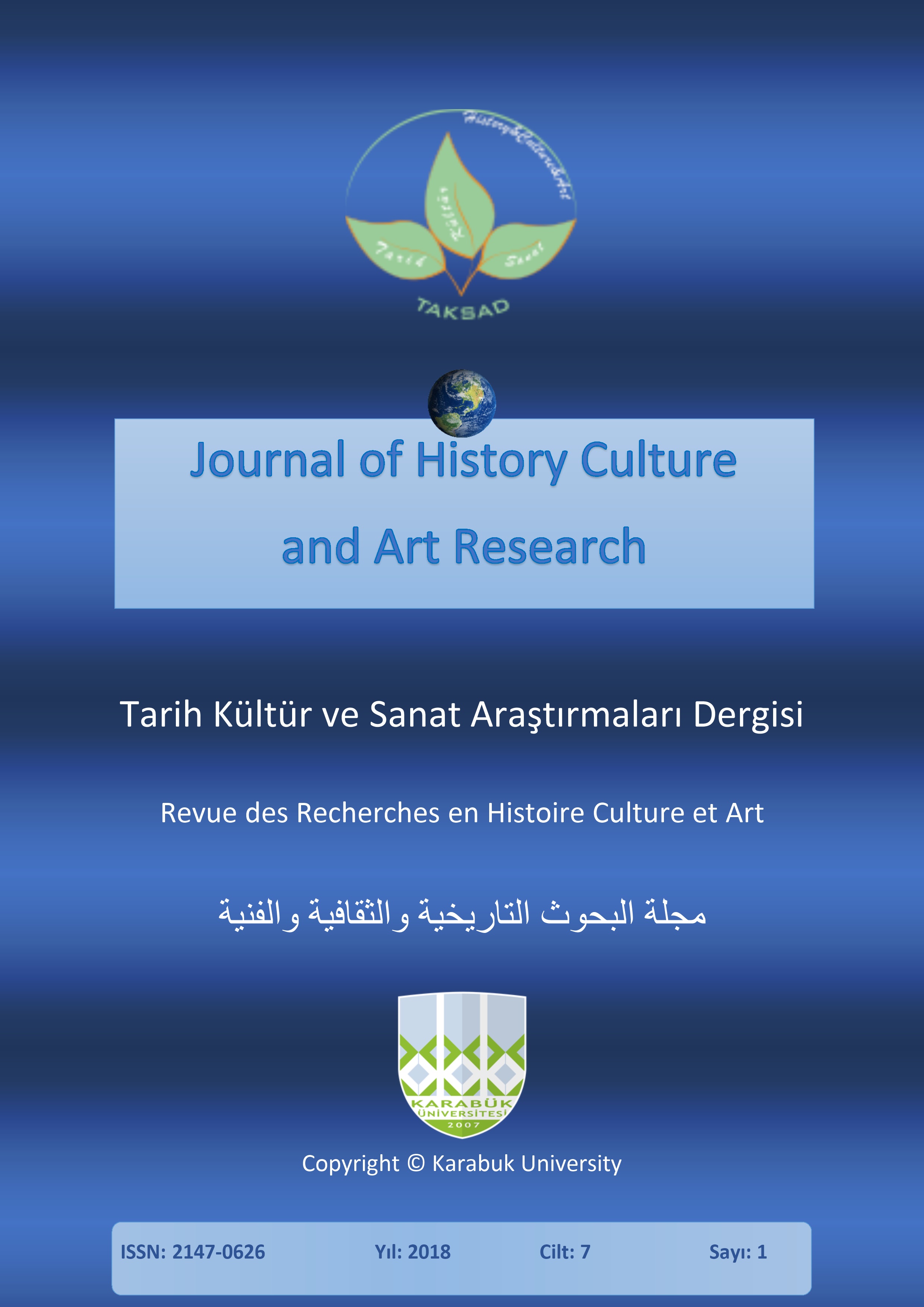Problem of Structure Planning of the Russian National-Civilizational Identity: Social - Pedagogical Aspect of the Cossacks Pedagogics
DOI:
https://doi.org/10.7596/taksad.v7i1.1448Anahtar Kelimeler:
Cultural-historical area- the Nation-building- Ethnic-national identity- Pedagogy of the Cossacks- Multiconfessional formations- the Russianhood.Özet
One of the most important problems of modern nation building in Russia is to reduce the level of disintegrational potential of ethnic and religious differences in Russian society. In this regard, the Russian scientific discourse has actualized the problem of the formation in Russia a national-civilizational identity capable of overcoming ethnic and confessional contradictions in the society. In the socio-pedagogical interpretation of this problem, the actual direction is the search for appropriate socio-cultural phenomena, the creation of pedagogical concepts and models based on the successive transfer of socio-cultural experience. One of such phenomena is the culture of the Russian Cossacks, which is the expression of the socially significant values of Russian culture that are in demand today and reflect the image of Russia as a Eurasian and Russian civilization. In the article, the culture of educational potential of the Russian Cossacks as a sociocultural phenomenon of the Russian civilization, which has transethnic foundation, is analyzed. As an up-to-date tendency is presented the modern conception of sociocultural education – the Cossacks pedagogics, which is based on successive transfer of sociocultural experience and which realizes national and cultural traditions of civilizational unity of the Russian community in the Russian educational paradigm.
Referanslar
Bondarevskaya, E. V. (2007). The strategy and conception of the student education in the cultural and educational environment of Pedagogical Institute SFU. Rostov-on-Don.
Brubaker, R. (2004). Nationalism reframed: nationhood and the national question in the new Europe (7th ed.). Cambridge: Cambridge University Press.
Calhoun, C. (1993). Nationalism and Ethnicity. Annual Review of Sociology, 19, 211-239.
Danilyuk, A. Y.; Kondakov, А. М. & Tishkov, А. М. (2009). The Conception of spiritual-moral development and education of a Russian citizen identity in the general education region: project. Moscow.
Gulyga, A. V. (2003). The Russian idea and its authors. Мoscow.
Lubskiy, A. V. (2015). The state - civilization and the national - civilizational identity in Russia. Journal of humanities of the south of Russia, 2, 30-45.
Lukash, S. N. (2014). The Cossacks of the Russian South: from tradition to innovations: monograph. Armavir.
Lukash, S. N. (2016). The “Russianhood” as the basic paradigm of the person of culture. News of Volgograd state pedagogical University, 1, 60-66.
Ting, H. (2008). Social construction of nation — a theoretical exploration. Nationalism and ethic politics, 14(3), 453-482.
Vinogradov, V. B. (2002). The russianhood as a paradigm of the North Caucasian historical and cultural unity in composition of Russia the russianhood in the history of Northern Caucasus. Armavir.
Vinogradov, V. B. (2006). The process of perception of the “russianhood” in historical fates of the Northern Caucasus (historiographic review). The Russian Northern Caucasus: facts, events, people, (pp. 14-17). Мoscow: Armavir.
Yilmaz, S. (2013). State, politics, and religion: effects of political and social change on the relationship between state and religion in Turkey, 2002-2012. Dissertation in sociology. University of Pittsburgh.
İndir
Yayınlanmış
Nasıl Atıf Yapılır
Sayı
Bölüm
Lisans
Tarih Kültür ve Sanat Araştırmaları Dergisi'nde yayımlanan tüm çalışmalar Creative Commons 4.0 CC-BY lisansı ile lisanslanmıştır.
Bunları yapmakta özgürsünüz:
- Bu eseri her boyut ve formatta paylaşabilir — kopyalayabilir ve çoğaltabilirsiniz.
- Materyalden Adapte et — karıştır, aktar ve eserin üzerine inşa et
- her türlü amaç için, ticari amaç da dahil
Alttaki şartlar altında:
Atıf — uygun bilgiyi, lisansa linki, and ve değişiklik yapıldıysa değişiklik bilgisinivermelisiniz. Sizi veya kullanımınızı lisansörün onayladığı bilgisini içermemek kaydıyla, size uygun şekilde bu işlemleri gerçekleştirebilirsiniz.
AynıLisanslaPaylaş — Eğer materyali karıştırdınızsa, aktardınızsa ya da materyalin üzerine çalıştınızsa, ancak aynı lisans ile dağıtabilirsiniz.
- Ek sınırlamalar yoktur — Lisansın izin verdiği hakları başkaları üzerinde kanunlarla ya da teknolojiyikullanarak sınırlayamazsınız.







